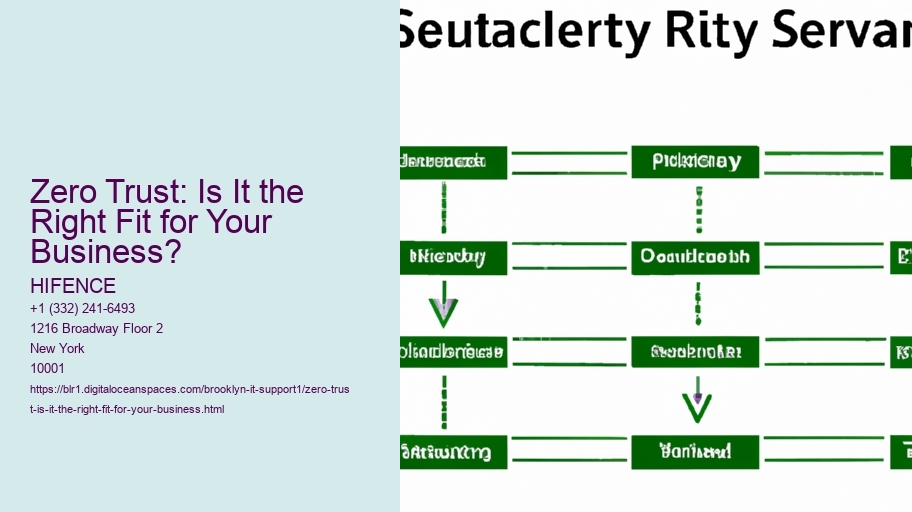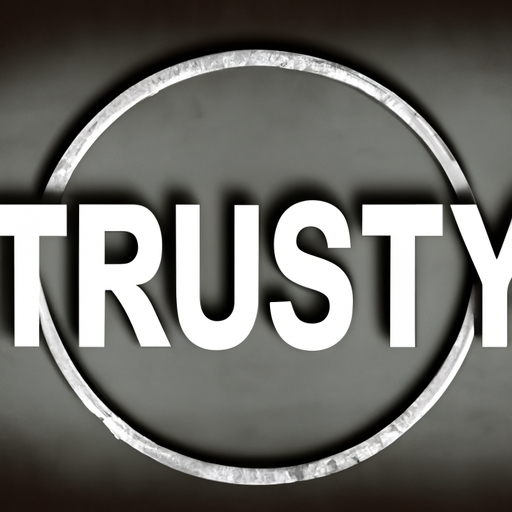
Okay, so, Zero Trust, right? Is it gonna actually work for your business? Thats the big question, innit? Before you even think about spending a dime, you gotta, like, really get the core principles. Its not just some magic box you plug in and BAM, suddenly secure.
Think of it this way: Zero Trust basically assumes everyone and everything is a threat. Sounds paranoid, yeah, but in todays world, its kinda smart. Instead of trusting everything inside your network, you gotta verify everything before it gets access to anything. Like, even if its been working fine for years!
This means things like using multi-factor authentication EVERYWHERE, not just for logging in. And segmenting your network so that if one part gets compromised, the bad guys cant just waltz into everything else. Its all about least privilege, too. People only get access to the stuff they absolutely need to get their jobs done.
Understanding these basic ideas – verify everything, assume breach, least privilege – is super important. If you dont get these down, Zero Trust is gonna be a bumpy ride, and probably a waste of money. Its not just throwing tech at a problem; its a whole new way of thinking about security!

Alright, so youre kicking around this whole Zero Trust thing, huh? Smart move, maybe! But before you dive headfirst, gotta take a good, hard look at where youre at. Think of it like this, you wouldnt buy a fancy new race car if your driveway is still gravel and you cant even afford gas, right?
Assessing your current security posture, basically means figuring out what you already got.
You need to understand your current weaknesses. Where are the holes? What keeps you up at night? Is it that old server room humming away in the basement? Or maybe its that one employee who always clicks on sketchy links.
Once you know all that, then you can start to see if Zero Trust is a good fit. Zero Trust isnt a magic bullet. Its a framework, a set of principles. It's not something you just “buy” and BAM, youre secure. It requires a shift in thinking and some serious investment, time, and maybe even some pain! And if your current security is, well, lets just say "weak", implementing Zero Trust might be like trying to build a skyscraper on a shaky foundation. You gotta fix the foundation first. Think basic cyber hygiene, patching systems, training employees, before you even thinking about the fancy stuff!

So, youre thinking about zero trust, huh? Good on ya! managed services new york city Its like, the buzzword security thing right now, but for good reason. Implementing a zero trust framework, well, it aint easy, let me tell you. But the benefits? Oh man, they can be HUGE.
First off, think about reducing your attack surface. Like, seriously, imagine shrinking the area bad guys can even try to get into. Zero trust does that by assuming everyone, inside and out, is potentially a threat. No more "trust but verify," its "never trust, always verify." That means fewer open doors and windows for hackers to sneak through.
Then theres improved visibility. With zero trust, youre constantly monitoring and authenticating everything. This gives you way better insight into whats happening on your network. You can see suspicious activity faster, and respond quicker. Its like having a super-powered security camera system for your entire digital world!

Compliance is another biggie. Lots of regulations, especially around data protection, are getting tougher and tougher. Zero trust principles can help you meet those requirements, because youre basically proving youre taking security seriously. Think of it as ticking all the right boxes and keeping the regulators happy.
Finally, and maybe most importantly, zero trust can boost your overall security posture. Its not a silver bullet, mind you, but its a massive upgrade. It makes it way harder for attackers to move laterally within your network if they do manage to get in. That limits the damage they can do! Its like building individual fortresses around your most important data and systems.
But remember, its a journey, not a destination. Getting to zero trust takes time, effort, and a whole lot of planning. But the payoff? Worth it in my book.

Okay, so youre thinking about Zero Trust, huh? Sounds all fancy and secure, and it is, but lemme tell ya, it aint all sunshine and rainbows. Theres definitely some potential challenges and, oh boy, the implementation costs can be a real shocker!
First off, getting your head around the whole "never trust, always verify" thing is harder than it sounds. Everyones used to just logging in and getting free reign of everything. Suddenly, they gotta prove who they are every time they access something? Expect some grumbling, im telling you. Training everyone on the new system and getting them to actually use it right? Thats a challenge in itself. Plus, it can slow things down, at least at first, and nobody likes that.
Then theres the cost. Youre talking about new software, new hardware maybe, definitely new security policies. And you gotta pay someone to set all this stuff up and manage it. It isnt cheap! You also gotta consider the cost of integrating Zero Trust with your existing systems. If your systems are kinda old and janky, that integration can be a major headache, and cost more money than you think.
And dont forget about complexity. Zero Trust is not a one-size-fits-all solution. You need to tailor it to your specific business needs, and that requires some serious planning and expertise. If you dont have that expertise in-house, youll need to hire someone or bring in a consultant, which, yep, costs more money.

So, is Zero Trust right for your business? Maybe! But you gotta weigh the benefits against the potential challenges and implementation costs. Do lots of research, talk to some experts, and be honest about your budget and your technical capabilities. Its a big decision, so dont rush into it!
Zero Trust, huh? Everyones talking about it like its the only way to secure your business. But is it really the only way? And more importantly, is it the right way for your business? Thats the million-dollar question, innit?
Lets be real, ripping out your existing security infrastructure and slapping in Zero Trust aint exactly a walk in the park. Its a massive undertaking that can be disruptive, expensive, and frankly, a pain in the butt. So, naturally, you gotta wonder if theres other options. Are there viable alternatives to this whole "trust nothing, verify everything" mantra?
Well, yeah, kinda. Theres defense in depth, which is basically layering your security measures like an onion. You got firewalls, intrusion detection systems, strong passwords, the whole shebang. Its a more traditional approach, sure, but it can still be pretty effective if you do it right. Then theres micro-segmentation, which is like creating tiny, isolated zones within your network. If one zone gets compromised, the damage is contained. Think of it like building walls within your castle!
The thing is, these alternatives aint perfect. They often rely on implicit trust at the network perimeter, which is exactly what Zero Trust is trying to avoid. managed service new york And they can be complex to manage, especially as your business grows. But for some organizations, especially smaller ones with limited resources, a phased approach combining elements of these alternatives with some Zero Trust principles might be more realistic!
Ultimately, the "right fit" depends on your specific needs, your risk tolerance, your budget, and your existing infrastructure. Dont just jump on the Zero Trust bandwagon because everyone else is doing it. Do your research, weigh your options, and figure out what works best for you. Its your business, after all, and only you can decide whats best for protecting it!
So, youre thinking about Zero Trust, huh? Its the buzzword these days, promising ultimate security and all that jazz. But before you jump on the bandwagon and tear down your existing setup, lemme tell you, hold your horses! Its not a one-size-fits-all kinda thing, and theres stuff you gotta think about, like, seriously.
First off, whats your current security posture like? Are you already pretty locked down, or are you basically leaving the front door wide open all the time? Zero Trust is a big shift, and if youre already doing a decent job, the added benefits might not justify the, you know, hassle.
Then theres the cost! Implementing Zero Trust isnt cheap. managed it security services provider Youre talking new tools, new training for your staff (who may or may not be thrilled about learning a whole new system, just sayin), and potential disruptions to your workflow. Can your budget handle all that?
And speaking of disruption, think about your employees! Zero Trust means everyone gets scrutinized, all the time. That can be a real morale killer if its not handled right. You need to communicate the why, and make sure they understand its about security, not about distrusting them personally.
Finally, and this is a biggie, is your business actually suited for Zero Trust? If youre a small company with a handful of employees and very little sensitive data, maybe a more traditional approach is all you need! Overkill isnt always the answer, ya know?
So yeah, Zero Trust can be amazing, but only if its the right fit. Do your homework, think about your needs, and dont just follow the crowd! Its your business, after all!
So, youre thinking about Zero Trust, huh? Cool! But before you jump in headfirst, you gotta figure out if it even makes sense for your business. And even more importantly, if you do decide to go for it, how will you know if its, like, actually working? Thats where figuring out how to measure success comes in.
Its not as simple as just installing some fancy new software and hoping for the best. managed it security services provider You need to think about what youre trying to achieve with Zero Trust in the first place. Are you trying to reduce your risk of breaches? Improve compliance? Maybe just streamline your security processes? Whatever it is, thats what youll measure against.
Some common things people look at are things like how many successful phishing attempts get through (should be less!), how quickly you can detect and respond to threats, and how easy it is for your employees to actually do their jobs without being constantly blocked by security measures. If everyone hate the new system, it is probably a bad system.
But the best measures are the ones tailored to your specific business and goals. So, sit down with your team, figure out what matters most, and then create some metrics to track it. Dont be afraid to adjust them as you go, either. Zero Trust is a journey, not a destination, and youll probably learn a lot along the way! You might even get better at it!